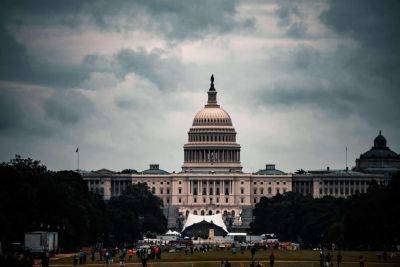BlackRock argues SEC has no grounds to treat crypto futures and spot ETFs differently
BlackRock has argued that the U.S. Securities and Exchange Commission doesn't have any legitimate reason to treat spot-crypto and crypto-futures exchange-traded fund applications differently.
BlackRock’s plan for a spot-Ether (ETH) ETF called the “iShares Ethereum Trust” was officially confirmed on Nov. 9, after Nasdaq submitted the 19b-4 application form to the SEC on the firm’s behalf.
In its application, BlackRock called the SEC’s treatment of spot crypto ETFs into question, as it asserted that the agency bases its reasons for continually denying these applications on incorrect regulatory distinctions between futures and spot ETFs.
I took Scott's advice and read Blackrock's argument for approval of a spot ETH ETF.
It's very compelling.
The argument flows from Grayscale's DC Circuit victory: the SEC can't lawfully approve ETH futures ETFs but not a spot ETH ETF. I agree.
Read here: https://t.co/7mwYNWDHRo https://t.co/fAgVBnOBZZ
The SEC has yet to greenlight a single spot-crypto ETF application, but has approved a host of crypto futures ETFs,
The securities regulator has indicated that this is due to crypto futures ETFs having supposedly superior regulation/consumer protections under the 1940 Act as opposed to the 1933 Act that covers spot-crypto ETFs.
Additionally, the SEC also appears to favor the regulation and surveillance-sharing agreements over the Chicago Mercantile Exchange’s (CME’s) digital asset futures market.
BlackRock argues, however, that the SEC’s preference for the 1940 Act lacks relevance in this area, as it places “certain restrictions on ETFs and ETF sponsors” and not the underlying assets of the ETFs.
“As a result, the Sponsor believes that the distinction between registration of ETH futures ETFs under
Read more on cointelegraph.com






















